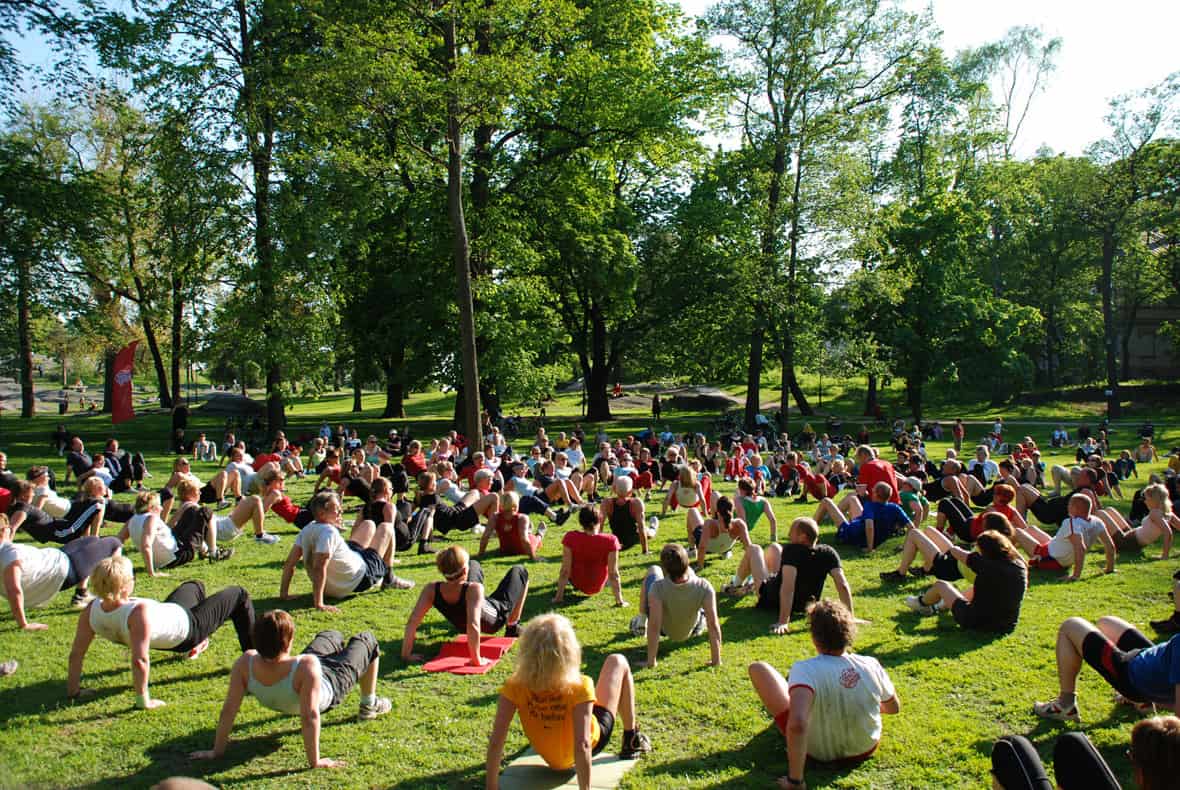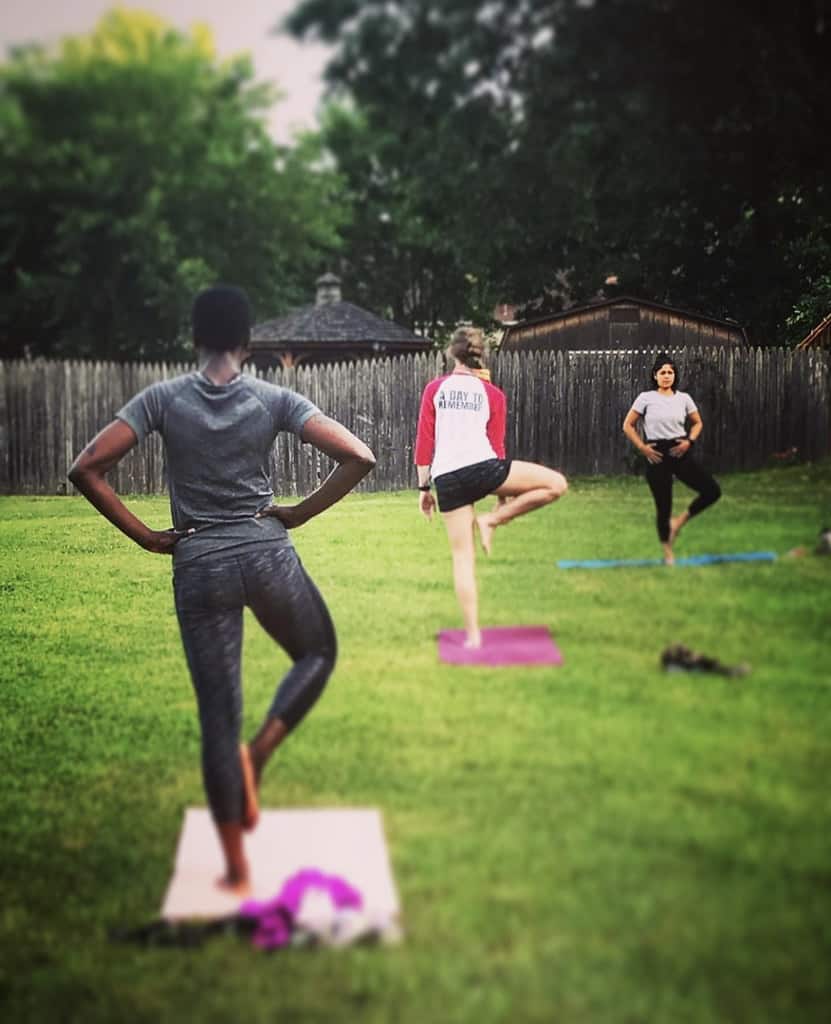Have you ever considered taking your workout routine to the great outdoors? Doing so offers a range of benefits for both physical and mental health. What’s more, it can be a refreshing change of pace from the monotony of indoor workouts. Read on to learn about the many benefits of exercising outside.
Outdoor Exercise Explained
Outdoor exercise refers to physical activity that takes place outside. In most cases, in a natural setting, such as a park, beach, or trail. It can include walking, running, cycling, or even outdoor yoga.
The primary difference between indoor and outdoor exercise is the setting. Indoor exercise, as the name suggests, typically takes place in a gym, fitness centre, or at home. While outdoor exercise provides a unique and refreshing way to stay active in an open space. The latter also offers a range of physical and mental benefits than you could imagine!
The Physical Benefits
These physical benefits from exercising outdoors can contribute to overall health and well-being:
1. Improved cardiovascular health
Engaging in activities like running, cycling, or walking can help improve heart health. Moreover, it increases blood flow, strengthens the heart muscle, and lowers blood pressure.
2. Increased Vitamin D intake
The sun’s rays are a natural source of Vitamin D, essential for bone health and immune function. And exercising outside can provide you with that daily intake. Ideally, during the early morning or late afternoon hours.
3. Increased calorie burn
Some outdoor activities can be more physically challenging than indoor activities. These include hiking, kayaking, and rock climbing. But they ensure an increased calorie burn and weight loss in return!
4. Improved balance and coordination
Cycling, for one, often requires navigating uneven terrain. This can help improve balance and coordination skills.
5. Lowered risk of chronic disease
Regular exercise, be it indoors or outdoors, has been linked to a lowered risk of chronic diseases. However, exercising outside may offer additional benefits. This is due to the added physical challenges and exposure to nature.
The Mental Benefits
On top of the physical perks, outdoor workouts can also provide a range of mental health benefits:
1. Reduced stress and anxiety
Spending time in nature can help lower levels of stress. Paired with engaging in physical activity, it can lead to reduced anxiety, too.
2. Improved mood
Outdoor exercise has been linked to improved mood and decreased symptoms of depression. Exposure to natural light and fresh air can improve mental clarity.
3. Increased self-esteem
Exercising outside can give a sense of accomplishment and confidence. This, as a result, can help improve self-esteem and feelings of self-worth.
4. Boosted cognitive function
Engaging in physical activity outdoors can lead to improved cognitive function. This includes better memory, attention, and creativity.
5. Increased social connection
Exercising outside can provide an opportunity to connect with others. Whether through group fitness classes, hiking groups, or other outdoor activities. Social connection, after all, is essential for mental well-being.
The Social Benefits
 (Image Credit: Wikimedia Commons)
(Image Credit: Wikimedia Commons)
It’s no secret that outdoor exercise can be a great way to improve social health and feel a sense of belonging. Here’s how:
1. Opportunities to meet new people
Outdoor exercise can provide opportunities to meet new people with similar interests. This can be especially beneficial if you’re new to an area or looking to expand your social network.
2. Participating in group activities
Hiking or fitness classes can provide gateways for you to join group activities. Such a great way to connect with others, stay motivated, and have fun!
3. Sense of community and belonging
Outdoor activities with others can foster a shared sense of camaraderie and mutual support. It can be incredibly beneficial if you may be feeling isolated or lonely. Overall, it can create a positive impact on your overall health and well-being.
4. Increased accountability
There’s also often a sense of accountability to show up and participate. The best way to stay motivated and committed to an exercise routine, indeed.
5. Shared experiences
Participating with others can create shared experiences and memories, too. This can foster deeper connections and lasting relationships.
Overcoming the Barriers
Exercising outside can be a great way to improve physical and mental health. But it’s also important to take necessary precautions and be prepared for the ‘barriers’. Here are some tips to help you make the most of exercising outside:
- Start slow. If you’re new to outdoor exercise, start with shorter workouts. Then, gradually increase intensity and duration.
- Choose the right time of day. Avoid exercising during the hottest part of the day. Schedule a time when the weather is most comfortable for you.
- Dress appropriately. Wear clothing that is appropriate for the weather conditions. Also, consider the type of activity you’ll be doing.
- Stay hydrated. Bring plenty of water with you and drink regularly throughout your workout.
- Protect yourself from the sun. Wear sunscreen, a hat, and sunglasses to protect your skin and eyes from the sun’s harmful rays.
- Be aware of your surroundings. Pay attention to your surroundings. Stay aware of any potential safety hazards, such as uneven terrain or traffic.
- Find a workout buddy. Exercising with a friend or joining a group can be a great way to stay motivated.
Common barriers to exercising outside include weather, safety concerns, and lack of motivation. Here are some ways to overcome them:
- Weather. Plan ahead and check the forecast before heading outside. Invest in appropriate clothing and gear for different weather conditions.
- Safety concerns. Choose well-lit areas and avoid exercising in areas that make you feel unsafe. Consider carrying a personal safety device, such as pepper spray. Also, make sure someone knows your planned route and estimated return time.
- Lack of motivation. Find a form of outdoor exercise you enjoy and make it a habit. Consider setting specific goals and finding an accountability partner.
Remember to always prioritise safety and listen to your body to avoid overexertion.
Round-up
By exercising outside, you can:
- improve your physical health
- boost your mood
- connect with others who share similar interests and goals
While there may be barriers, these can be overcome with preparation and planning. So why not give outdoor exercise a try? There are plenty of ways to enjoy the great outdoors while getting your daily exercise. Grab your sneakers, head outside, and start moving!



 (
( (
( (
( (
(